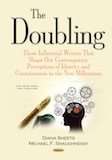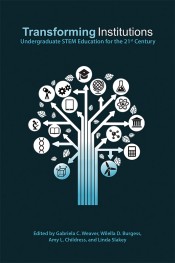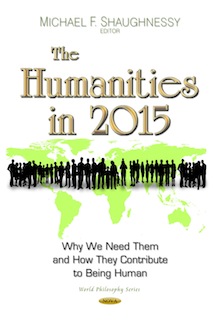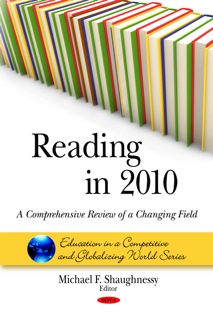Storytelling, Memoir, and the 2008 Presidential Election
Copyright © 2008 by Diana E. Sheets
In one of the most contested battles for the presidency in more than a generation, the Republican and Democratic strategists have promoted personal narratives and moral worldviews at the expense of policy platforms in order to win the emotional support of voters. Consequently, this essay will examine the autobiographies of Senator John McCain and Senator Barack Obama. Both have written two volumes: first, the story of their formative development that led to the choice of a career in politics; second, the personal reflections of the candidates on how underlying values have guided their approach to policy. For better or worse these narratives exert a powerful emotional influence over voters, far greater than any rational discussion based on actual policies. This essay builds on an analysis of George Lakoff’s Moral Politics and the implications of Drew Westen’s The Political Brain explored in Literary Gulag’s essay on narrative and the 2008 presidential election (http://www.literarygulag.com/blog/show/22).
Before exploring the narratives of the presidential candidates, it is important to understand the challenge in presenting “truth” in memoir and autobiography. In this genre, the protagonist, the narrator, and the author are three distinct selves traveling through time and shifting memories. The author acts as supreme arbiter, shaping the contours of the story. But had the autobiography been written at a different time, the narrative may well have been a very different story, reflecting the author’s variable perspectives that are changeable over the course of a lifetime. For autobiography, as Paul John Eakin noted, stems from an author “reaching back into the past not merely to recapture but to repeat the psychological rhythms of identity formation, and reaching forward into the future to fix the structure of this identity in a permanent self-made existence as literary text” (Fictions in Autobiography: Studies in the Art of Self-Invention, Princeton University Press, 1985, 226). Thus, memoir and autobiography must be assessed not as objective truth illuminating a single self along a trajectory of self-discovery but as a story in which the author consciously selects from multiple identities and multiple narratives to convey typically a story of a protagonist who journeys toward self-knowledge or enlightenment. The implications for truthful storytelling have been explored in Literary Gulag’s essay on memoir (http://www.literarygulag.com/blog/show/9).
With this caveat in mind, what do the autobiographies of our presidential candidates reveal about the moral values framing their political campaigns? First, let us consider John McCain’s Faith of My Fathers (Random House, 1999) and Worth the Fighting For (Random House, 2002), both written with the assistance of his campaign strategist Mark Salter. McCain’s worldview reflects George Lakoff’s “Strict Father” model of government with its overarching premise that “life is difficult and the world is fundamentally dangerous” (Lakoff, 65). For as McCain notes, in assessing the aftermath of the attacks of September 11, the American people responded to terrorism by fighting to preserve their liberties. These liberties were not materialistic wants, but the freedoms inherent in a great democracy.
The attacks on
. . . But when our ideals were threatened by people who despise them, Americans quickly remembered why we love those ideals and how they unite us. It shook us from our complacency. It reminded us that each generation of Americans must prove again that a nation conceived in liberty is inherently greater than any nation ordered to exalt the few at the expense of the many or made of a common race or culture or maintained to preserve traditions that have no greater attribute than longevity. (Worth the Fighting For, 335-6)
Our protagonist, John McCain III, follows in the footsteps of his grandfather and father, two four-star admirals, the first American family to achieve this honor. McCain’s grandfather commanded the strongest aircraft carrier force of the Third Fleet in World War II. His father distinguished himself as a submarine commander in World War II, rising to become commander of all
For I have learned the truth: there are greater pursuits than self-seeking. Glory is not a conceit. It is not a decoration for valor. It is not a prize for being the most clever, the strongest, or the boldest. Glory belongs to the act of being constant to something greater than yourself, to a cause, to your principles, to the people on whom you rely, and who rely on you in return. No misfortune, no injury, no humiliation can destroy it. (257)
One of the most moving moments in Faith of My Fathers—powerful in its symbolic import and remarkable understatement—occurs when McCain’s father is appointed
Worth the Fighting For presents our protagonist’s story after his release as a prisoner of war: the end of one marriage, the beginnings of another, the death of his father, the decision to run for the U.S. Senate, and the political associations and policies that followed his election to that office. We read about McCain, the maverick, a leader inspired by Theodore Roosevelt and buoyed by Hemingway’s For Whom the Bell Tolls. We learn about his ties with
In his autobiographical story, Dreams from My Father: A Story of Race and Inheritance (Three Rivers Press, 2004, first published in 1995), Barack Obama provides readers with a moving narrative, chronicling “a personal, interior journey—a boy’s search for his father, and through that search a workable meaning for his life as a black American” (xvi). Dreams from My Father is suffused with literary style, poignancy, and an approach that draws upon the influences of James Baldwin, Ralph Ellison, Langston Hughes, Richard Wright, and W.E.B. Du Bois while inhaling the righteous indignation of Malcolm X and the spiritual poignancy of Martin Luther King, Jr. and presenting an exotic backdrop featuring
Dreams from My Father shines a light on one man’s labyrinth of consciousness. The tone, the imagery, the rhythm have the cadence, the mood of fiction. “The road to the embassy was choked with traffic: cars, motorcycles, tricycle rickshaws, buses and jitneys filled to twice their capacity, a procession of wheels and limbs all fighting for space in the midafternoon heat” (28). Again, by way of example, “
If McCain’s values embrace “Strict Father” politics, Obama’s principles affirm “Nurturant Parent” perspectives. His autobiographical story is the journey of self struggling toward self-realization. Along the way some “reefer,” “a little blow,” and other youthful indulgences signified his former membership in “the club of disaffection” (93-4). While living in
It was not as if Obama had not been exposed to “Strict Father” politics. His Indonesian step-father had instructed him in the realities of a harsh world. When Barack was hit with a rock by a boy who stole his friend’s soccer ball, Lolo taught him how to box. The world, Barack learned, “was violent . . . unpredictable and often cruel.” Lolo cautioned Barack against giving money to the poor. Lolo fired servants who were negligent, despite the protests of Barack and his mother, Ann. Lolo emphasized that “'Men take advantage of weakness in other men. . . . The strong man takes the weak man’s land. He makes the weak man work in his fields. If the weak man’s woman is pretty, the strong man will take her. Which would you rather be?’” “'Guilt,’” Lolo told Ann, “'is a luxury only foreigners can afford. Like saying whatever pops into your head.’” He suggested that she “'didn’t know what it was like to lose everything, to wake up and feel her belly eating itself. She didn’t know how crowded and treacherous the path to security could be. Without absolute concentration, one could easily slip, tumble backward’” (35-41, 46).
Mother and son resisted this “Strict Father” perspective in favor of the “Nurturant Parent” model. When Ann was asked to help Lolo entertain his American clients, she refused. She insisted that Obama devote three hours daily, Monday through Friday, to his American correspondence courses. When there were no further studies available, Obama was sent back to
If Dreams from My Father is a literary foray about race and identity presented as memoir in order to entice the reader’s sympathy, The Audacity of Hope: Thoughts on Reclaiming the American Dream (Crown Publishing Group, 2006) is an elaboration of our protagonist’s “progressive” principles. It is a manifesto for change expressed in terms of traditional liberal policy. The title is borrowed from a sermon by Jeremiah Wright. Thus, Obama assumes the mantle of secular priesthood, the tone lofty and exhilarating, the proposals pragmatic and limited. Each chapter begins with a confessional anecdote before advancing his vague propositions for reform. Not, however, the all-embracing welfare of Lyndon Johnson’s Great Society. These proposals are tepid even with respect to those advocated by the Clintons (Publishers Weekly, Nonfiction Reviews,
In considering the autobiographical stories of John McCain and Barack Obama, the reader can not help observing that McCain’s story seems more truthful, if less emotionally compelling. For the most part, McCain’s narrative is not introspective. Rather, our protagonist describes how his experiences growing up in the McCain family, attending the naval academy, flying combat missions in the navy, and surviving torture as a prisoner of war shaped his dedication to a patriotic cause greater than self. Valor—the heroic pursuit of liberties in the cause of his nation—was achieved through his military service and, later, as a U.S. Senator. Our hero’s narrative is event-driven. McCain’s stories can be verified or challenged by eyewitnesses.
By contrast, Obama’s narrative is steeped in subjectivity that borders on solipsism. The reader is placed inside Obama’s mind experientially living his emotional disappointments, his disaffection, and, ultimately, his dreams for change. Consequently, our hero has precious little objective reality by which standards of truth or falsehood may be applied to assessing his story. Furthermore, our protagonist suffers no great obstacle to fulfilling his quest, although the reader perceives injustice because of our hero’s focus on his racial identity. But then, as Drew Westen has demonstrated in The Political Brain, emotion, not reality, guides the voters’ selection of a candidate (Public Affairs, 2007, ix-xv). For this reason it is crucial to subject Obama’s narrative to external scrutiny, shinning the light of reason where the presidential candidate would vastly prefer the furtive realm of postmodern subjectivity and identity politics.
Let us consider, therefore, David Freddoso’s The Case Against Barack Obama (Regnery Publishing, 2008), which challenges the truthfulness of the Obama narrative. With less than one term in the U.S. Senate, Freddoso suggests, Obama is the least experienced presidential candidate to run for office in one hundred years (ix). Obama’s appeal, as his biographer David Mendell notes, is in “his ingenious lack of specificity.” When “talking or writing about a deeply controversial subject, he considers all points of view before cautiously giving his own often risk-averse assessment, an opinion that often appears so universal that people of various viewpoints would consider it their own” (56). For this reason Democratic operative Ben Wallace-Wells refers to him as “a kind of human Rorschach test” (56, 253). Or as Noah Norman, one of his supporters acknowledged, paraphrasing 1 Corinthians 9:22, “He’s all things to all men” (Freddoso, 68, 255, citing the article by Jose Antonio Vargas, “Obama Fever Is Breaking on the Web,” Washington Post,
This tactic of seeming controversial while giving all points of view before appearing cautiously conciliatory is employed by Obama in Dreams from My Father. He writes of an incident when “Toot,” his grandmother, asks her husband to drive her to work because of her fears of a menacing black panhandler at the bus stop. “Gramps” accuses her of racism. But later Frank—revealed to us by Freddoso as Frank Marshall Davis, a Marxist with Communist Party ties—suggests to young Barack that his grandmother may indeed have had reason to fear an angry black man. Thus, the reader can decide whether Toot is, in fact, a racist or whether she has astutely anticipated the actions of a potentially violent man (131-135, 164-8, citing Dreams from My Father, 87-91).
Freddoso presents evidence that Barack Obama is a leftist with close ties to Reverend Jeremiah Wright, former Weatherman Bill Ayers, and other radicals. Nonetheless, in his bid for the presidency, Obama has never sponsored reform legislation that would have jeopardized his career. Rather, he has assiduously courted
When Obama ran for state senate in
Freddoso argues the only truly competitive race Obama entered, prior to his bid for the presidency, was in 2000 when he made a bid for the U.S. House of Representatives and was overwhelmingly defeated in the democratic primary (xiii).
Obama’s subsequent bid for the U.S. Senate was orchestrated by his “political Godfather” Illinois Senate President Emil Jones, associated with the Chicago Democratic Machine. Thanks to Jones, Obama was named chair of the influential state senate health committee in 2003. Jones helped to shield Obama from having to debate controversial bills. On 130 occasions Obama voted “present,” rather than support or oppose pending legislation. On several occasions when a controversial bill was discussed, he did not participate at all. Jones paved the way for Obama’s U.S. Senate nomination by giving him key legislation shortly before it passed—in some cases “bill-jacking” critical legislation from the original sponsors—in order to bolster Obama’s resume. Thus, two high-profile bills—one, requiring the recording of murder interrogations, the other, mandating procedures to reduce racial profiling—were actually sponsored by Senator Hendon, although Obama takes credit for them (27, 29-32).
Freddoso demonstrates how ties to the Chicago Democratic Machine and corrupt Chicago political fundraiser Antoin Rezko combined with Obama’s political astuteness and good fortune (the messy divorces that waylaid his Democratic and Conservative rivals and led to the ineffectual, last-minute challenge by Alan Keyes) helped ensure his election to the U.S. Senate (5, 32, 43-52). But the extent to which his selection as Democratic nominee for the 2008 Presidential election was “greenlighted” can be gleaned from the fact that Obama’s Keynote Address to the Democratic Convention on
The appeal of Obama, characterized by Freddoso as “Obamessiah,” is vacuous spirituality pump-primed for a media-savvy population attuned to speech and video and television and text-messaging. His campaign targets a younger generation that has consistently favored video clips on the Internet over reading newspapers, periodicals, books, and policy assessments critical to gaining an understanding of governmental practices and policy (read









